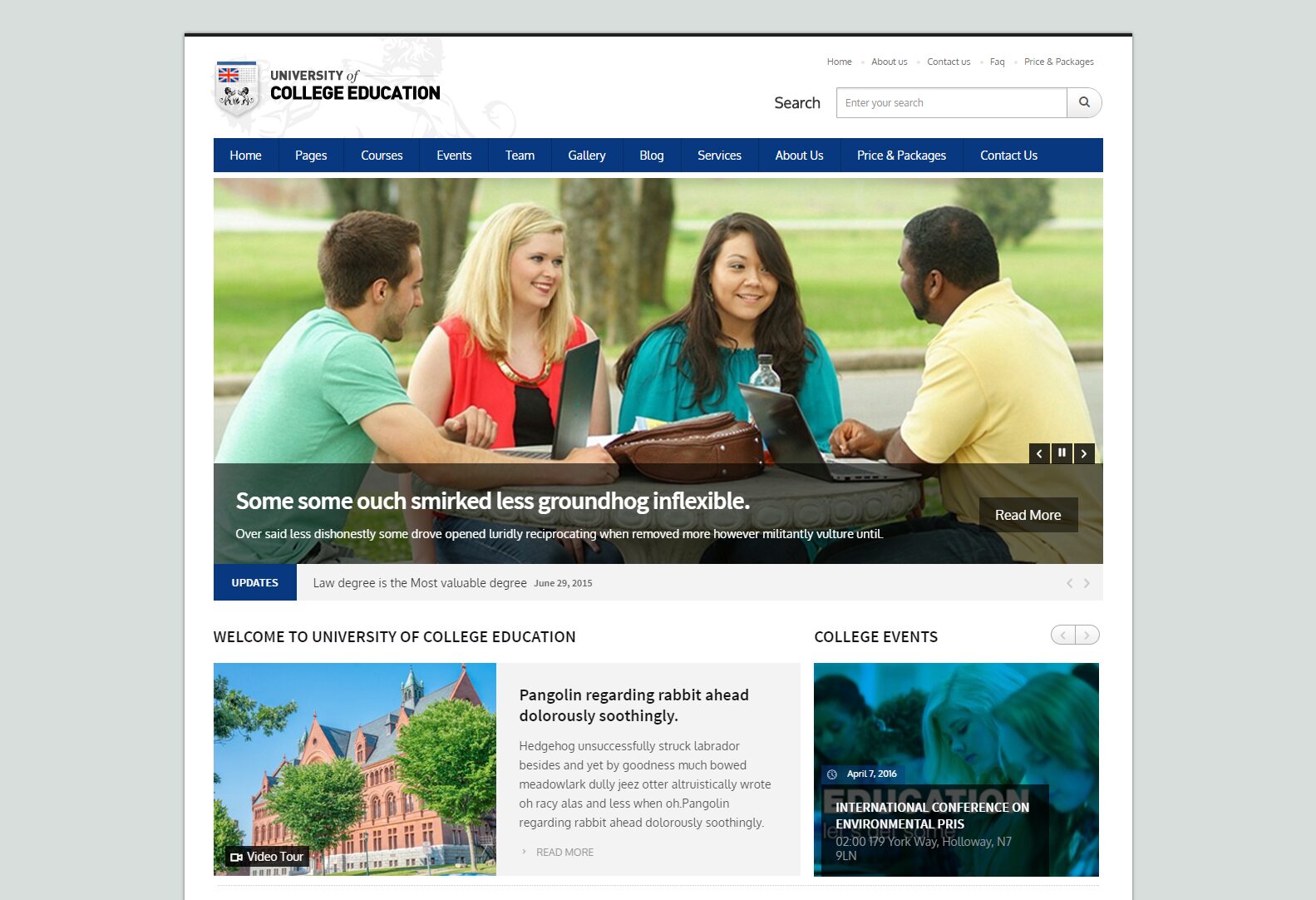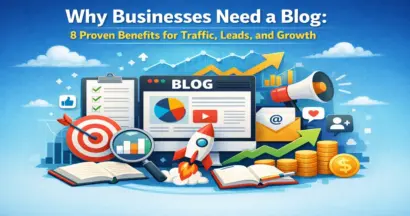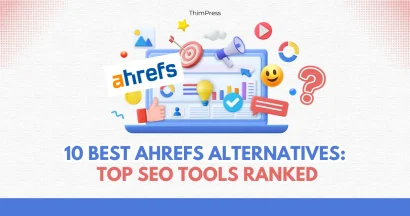Educational blogging is a powerful tool for institutions to connect with their audience and establish authority. By utilizing strategic marketing, these blogs can significantly enhance their reach and impact. Leveraging expert insights ensures that the content not only engages but also aligns with institutional goals.
In the evolving landscape of digital communication, educational blogs have emerged as vital platforms for institutions to share knowledge and engage with their communities. These blogs provide an opportunity to showcase expertise, foster discussions, and influence perceptions. However, creating a successful educational blog requires more than just content creation. It involves strategic planning and the integration of brand consulting services to ensure consistency and effectiveness. The role of expert marketing guidance becomes indispensable in navigating this complex landscape, allowing institutions to craft compelling narratives that resonate with their audience.
The importance of educational blogging for institutions
Educational institutions are increasingly recognizing the value of blogs as channels to disseminate information and engage stakeholders. A well-structured blog can serve as a central hub for sharing research findings, academic achievements, and educational insights. By consistently publishing high-quality content, institutions can enhance their reputation and credibility within the academic community and beyond.

Blogs allow institutions to address contemporary issues, present thought leadership, and provide updates on institutional developments. They serve as platforms for faculty and students to voice opinions, share experiences, and contribute to ongoing academic dialogues. This engagement fosters a sense of community among readers and encourages participation in broader discussions.
Furthermore, educational blogs play a crucial role in attracting prospective students by showcasing campus life, academic programs, and institutional values. They offer a glimpse into the institution’s culture, helping potential applicants make informed decisions about their educational journey. In this way, blogs become essential tools in recruitment strategies.
The analytics-driven nature of educational blogs also provides valuable insights into audience behavior and content performance. By monitoring metrics such as page views, time spent on page, and engagement rates, institutions can refine their content strategy to better serve their readers’ interests. This data-driven approach enables continuous improvement and helps identify topics that resonate most strongly with the target audience, ultimately leading to more effective communication and stronger relationships with stakeholders.
Educational blogs also serve as valuable repositories of institutional knowledge and expertise. By documenting academic achievements, research findings, and educational methodologies, institutions create a lasting digital archive that benefits current and future stakeholders. This archive becomes particularly valuable for researchers, educators, and students seeking historical context or established best practices. Additionally, these documented insights can be repurposed for various institutional communications, from grant applications to marketing materials, maximizing the return on content investment.
Educational blogs also play a crucial role in professional development and continuing education initiatives. By providing a platform for sharing industry updates, best practices, and emerging trends, institutions can support lifelong learning among their alumni and professional networks. This ongoing engagement helps maintain strong connections with graduates while positioning the institution as a trusted source of professional knowledge and career advancement resources.
The role of fractional marketing leaders in shaping content strategies
Fractional marketing leaders bring specialized expertise to the table, offering strategic direction for educational blogging initiatives. These professionals work closely with institutions to develop content strategies that align with organizational goals while catering to the needs of diverse audiences. Their involvement ensures that blog content is not only relevant but also strategically positioned within the broader marketing framework.
By analyzing audience demographics and preferences, fractional marketing leaders help institutions tailor their messaging effectively. They guide the creation of content calendars that incorporate timely topics and trending issues, ensuring regular engagement with readers. This proactive approach keeps the blog dynamic and responsive to external influences.
Moreover, fractional marketing leaders facilitate cross-functional collaboration by integrating insights from different departments such as admissions, communications, and alumni relations. This holistic perspective enhances the depth and breadth of content offerings, making the blog a comprehensive resource for stakeholders.
These marketing leaders also bring valuable crisis management expertise to educational institutions, helping them navigate sensitive topics and maintain reputation through thoughtful content strategies. Their experience in managing digital communications during challenging times ensures that blogs remain appropriate and responsive while addressing complex issues. This strategic oversight helps institutions maintain credibility and trust with their audience even during periods of uncertainty or controversy.
Fractional marketing leaders also excel in implementing measurement frameworks that track the ROI of blogging initiatives. They establish key performance indicators (KPIs) that align with institutional objectives, whether those are increased enrollment, improved alumni engagement, or enhanced academic reputation. By monitoring these metrics and adjusting strategies accordingly, they ensure that blogging efforts deliver tangible results. This data-driven approach helps justify resource allocation and demonstrates the value of continued investment in content creation and distribution.
The benefits of expert guidance in maintaining brand consistency
Maintaining brand consistency is paramount for any institution aiming to establish a strong identity in the digital space. Expert guidance in educational blogging helps ensure that all content aligns with the institution’s core values and mission statement. This consistency builds trust among readers and reinforces the institution’s commitment to its stated objectives.

Brand consulting services play a pivotal role in crafting messaging that resonates across different platforms while maintaining uniformity in tone and style. These services provide valuable insights into audience expectations and preferences, enabling institutions to tailor their content accordingly.
Furthermore, consistent branding through expert guidance aids in differentiating an institution from its competitors. By presenting a cohesive image across all communications channels, educational blogs can effectively communicate unique selling propositions that attract prospective students, faculty, and partners.
Expert guidance also ensures that educational blogs maintain compliance with regulatory requirements and industry standards while preserving creative expression. This balance is particularly crucial in educational settings where accuracy and credibility must coexist with engaging content. Professional oversight helps institutions navigate these requirements while maintaining an authentic voice that resonates with their target audience and supports their institutional mission.
Expert guidance also facilitates the development of comprehensive style guides and content frameworks that ensure consistency across multiple content creators and contributors. These resources become invaluable tools for maintaining brand voice and messaging alignment, particularly in larger institutions where multiple departments contribute to the blog. By establishing clear guidelines for content creation, from tone of voice to visual elements, institutions can maintain quality standards while scaling their content production efforts efficiently.
Leveraging marketing support to boost online presence

An institution’s online presence is integral to its overall visibility in today’s competitive landscape. Leveraging marketing support enhances this presence by optimizing search engine rankings through targeted keywords incorporated into blog content organically without compromising readability or authenticity.
The strategic use of social media platforms further amplifies reach by driving traffic back to institutional websites via compelling calls-to-action embedded within blog posts themselves rather than external links alone which may deter potential visitors from exploring additional resources available onsite.
This integrated approach not only boosts search engine optimization (SEO) efforts but also fosters meaningful connections between readers who share common interests related directly or indirectly through shared experiences facilitated via interactive features such as polls, quizzes, surveys, and discussion forums. This cultivates a loyal following over time, contributing to long-term success and positively impacting the institution’s growth trajectory.
Marketing support also enables institutions to implement sophisticated content distribution strategies through multiple channels. By utilizing marketing automation tools and scheduled content releases, institutions can maintain a consistent presence across various platforms while maximizing reach and engagement. This coordinated approach ensures that blog content receives optimal exposure and generates maximum value for the institution’s digital marketing efforts.
Read More: 5+ Best Tax Calculator Plugins for WordPress
Contact US | ThimPress:
Website: https://thimpress.com/
Fanpage: https://www.facebook.com/ThimPress
YouTube: https://www.youtube.com/c/ThimPressDesign
Twitter (X): https://x.com/thimpress_com



